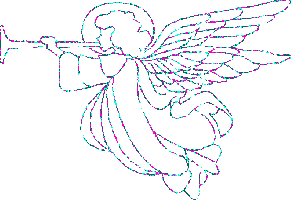

How Massage is Beneficial
- for those that want to know a little more
than just "it's good for you" -

Effects of massage on the muscular system:
- Massage encourages the nutrition and development of the muscular system by stimulating it's circulation, nerve supply, and cell activity.
- Regular and systematic massage causes the muscles to become firmer and more elastic, as well as flexible, and pliable.
- It is an effective means of relaxing tense muscles and releasing muscle spasms and cramps.
- Massage aides in the removal of metabolic waste products that can accumulate in muscles and helps nourish tissues.
- Massage helps prevent and relieve stiffness and soreness of muscles.
- Injured muscle tissue often heals more quickly with less connective tissue build-up and scarring with regular therapeutic massage.
- Properly applied soft tissue massage can help to prevent and reduce the development of adhesions and excessive scarring following trauma or surgery.
- Massage can have positive effects on the motion of limbs with a limited range due to tissue injury, inflammation, muscle tension, or strain.
- Massive massage movements benefit circulation of the blood and lymph, nourish the skin, relax and strengthen the muscles, and soothe the nerves.
- Massage helps improve body alignment with reduction in muscular tension.
Effects of massage on the circulatory/lymphatic system:
- Scientific body massage procedures affect the quality and quantity of blood coursing through the circulatory system.
- With the increased flow of blood to the massaged area, better cellular nutrition and elimination are favored.
- The work of the heart is lessened due to the improvement in surface circulation.
- Under the influence of massage, the blood-making process is improved, resulting in an increase in the number of red and white blood cells.
- Since most massage movements are directed towards the heart, it facilitates the flow of venous blood and lymph back toward the heart and other eliminatory organs.
- Friction-type movements of massage hasten the flow of blood through the superficial veins, increases the permeability of the capillary beds, and produces an increased flow of interstitial fluid-creating a healthier environment for the cells.
- Kneading movements of massage stimulate the flow of blood through the deeper arteries and veins.
- Friction, kneading, and stroking movements stimulate lymph circulation. Pressure against the vessels not only tones their muscular walls but also propels the movement of the blood.
Effects of massage on the nervous system:
- The effects of massage on the nervous system depend on the direct and reflex reaction of the nerves stimulated.
- The nervous system can be stimulated or soothed depending on the type of massage movement applied.
- Massage can be very effective in treating/reducing pain conditions, as well as anxiety and/or expression elated to these.
- Stimulation of the peripheral nerve receptors could have reflex reactions affecting the vasomotor nerves, internal organs, pain perception, or the underlying joints and muscles of the areas being massaged.
- Massage can help in treating restlessness and insomnia.
Effects of massage on the digestive system:
- Massage can be used as an aide in preventing or assisting to alleviate constipation by improving the peristaltic action of the small intestines and colon.
- Stimulated activity of organs due to improved circulation and waste removal facilitates enzyme production for digestion.
- Massage may relax abdominal and intestinal walls when tense or spastic.
- Digestion may be aided by general relaxation.
Psychological effects of massage:
- The psychological effects of massage should not be underestimated. If a person feels healthier, relaxed, invigorated, or more energetic, the massage has been very worth it.
- Massage can be effective therapeutic tool towards a positive self-image and sense of self-worth.
- Many people suffer from stress and find that massage promotes relaxation as it soothes away minor aches and pains.
- Massage can help people become more aware of where they are holding tension, and where they have tight muscles or painful areas.
- Regular massage can help people feel more youthful and encourage them to pay more attention to proper nutrition, exercise, and good health practices. People have regular massages as much for psychological benefit as they do for physical benefit.
- Massage can be a very positive, nurturing experience. Constant pain can simply wear you down. Decreasing/alleviating this pain can do wonders for your psyche, and help you to smile and do things again.
![]()



![]()

Muscle & Tissue Care by Lucy
469-231-2911



